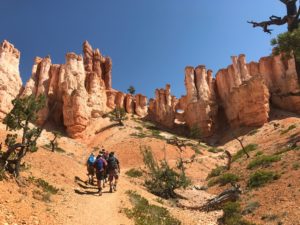Addiction is created when a person seeks the help of drugs and alcohol to stimulate the senses once ignited by life itself.
The problem with this approach is addiction doesn’t happen in the heart. It happens in the brain.
The American Society of Addiction Medicine (ASAM) defines addiction as a chronic, underlying, largely genetic brain disease, making it a medical issue rather than a behavioral issue or moral failing and can be a root cause behind other behavioral, social and psychological problems like depression, cognitive distortions, social isolation and anxiety.
Addiction is created when a person seeks the help of drugs and alcohol to stimulate the senses once ignited by life itself. Drugs are powerful because they are immediate and they are dangerous because they, quite literally, hijack the reward centers of the brain, causing it to no longer seek other methods of feeling good. The brain learns the easiest and fastest way to feeling good is the drugs and, as a result, creates neural pathways specific to the use of the drug.
In other words, the brain stops using the neural pathways once used for such things as communication, interaction, creative-thinking, self-love and self-improvement and creates a straight line of communication with drugs and alcohol and any methods of communication necessary to attain them. The brain seeks to dispose of any behavior or activity not deemed useful in getting drugs and alcohol, and creates and supports behaviors and beliefs that are conducive to getting drugs and alcohol, which are often illegal and antisocial. Those behaviors and beliefs create an alternative cycle of behaviors and beliefs that support unhealthy characteristics such as isolation, mistrust, anger, depression, self-hate and poor physical health.
Alcoholism is approximately 60% genetic and biological, which is approximately the same percentage as asthma or high blood pressure, yet no one would consider treating those conditions with psychological methods alone. A whole-person, mind/body approach is required and that is why the approach taken by Back2Basics applies therapeutic lifestyle changes in addition to medical and psychological treatment: a calculated approach to reducing the risk of relapse.
Research has shown a lifestyle equipped with supportive relationships, a healthy diet, regular exercise, service to others, relaxation and an open mindset can be life changing, if not lifesaving. FBN
By Roy J. DuPrez M.Ed.
Roy J. DuPrez M.Ed., is the founder of Back2Basics.
Back2Basics is an adventure recovery program, up to six months, for young adult males from 18-30 with substance abuse issues looking for a positive and meaningful life. In our program, clients are exposed to a weekly combination of both wilderness adventures and residential programming. Now accepting insurance.
Back2Basics Outdoor Adventure Recovery combines residential therapeutic counseling with experiential outdoor adventures to treat individuals with substance and alcohol addiction and lead them through rehab and recovery into long-term sober living. The program is highlighted by spending time in the beautiful serene wilderness where individuals are physically challenged, their minds are cleared and they learn ways to defeat old addictive thinking patterns through various outdoor adventures.
Back2Basics is an adventure recovery program, up to six months, for young adult males, from 18-30, with substance abuse issues looking for a positive and meaningful life. In our program, clients are exposed to a weekly combination of both wilderness adventures and residential programing.
Now accepting all private insurance plans.
Call 928-814-2220 or email
rduprez@b2badventures.com.





